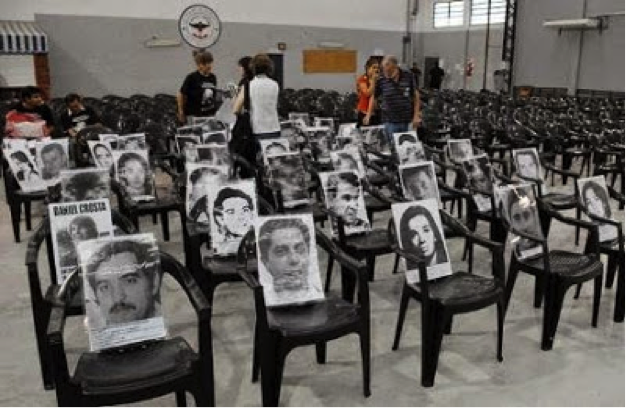And Who Was the Second Shooter?
In commemoration of Bobby Kennedy’s assassination on this day nearly half a century ago, WhoWhatWhy offers a real treat to students of history. In an extensive podcast, Kennedy confidante Paul Schrade, who was also shot that fateful night, talks about his relationship to RFK and reveals insights never heard before. The 91-year-old Schrade begins with a leisurely reminiscence on early labor and political days, of special interest to those with some background in those issues. Starting nine minutes in, he turns to the RFK assassination.
Paul Schrade had known Bobby Kennedy for years. They had worked in the political trenches, helped organize the farmworkers in California and developed a close bond. That night in the pantry of the Ambassador Hotel, Schrade was shot in the head and Kennedy was killed. For years Schrade has maintained that Sirhan Sirhan was not the lone shooter. He has devoted himself to proving that assertion.
In this conversation with WhoWhatWhy’s Jeff Schechtman, Schrade, now 91, talks at great length about his relationship with Bobby and what happened that night.

Criminalist and Coroner trace trajectories of bullets (upper left); Sirhan Sirhan in his jail cell, August, 1968 (lower left); Paul Schrade with Robert F. Kennedy (right). Photo credit: California State Archives and MALDEF / YouTube
He tells stories that will certainly add to the historical record of of Bobby Kennedy and his assassination. Listening to Schrade is like sitting back and settling in to look at a long and compelling audio documentary of events from 48 years ago.
After taking us through the events and the subsequent investigation, you can hear the pain and reluctance from Schrade when he talks about how Bobby might have changed the country, had he lived.
Related WhoWhatWhy stories:
Sirhan: A “Manchurian Candidate” in the RFK Assassination?
The Full Story of the Sirhan Sirhan Parole Hearing
The Tortured Logic Behind Sirhan Sirhan’s Parole Denial
Update: Sirhan Denied Parole; RFK Friend Distraught

 Click HERE to Download Mp3
Click HERE to Download Mp3
Related front page panorama photo credit: Adapted by WhoWhatWhy from Robert Kennedy (Sven Walnum Photograph Collection / JFK Library)
Full Text Transcript:
Jeff Schechtman: Welcome to radio WhoWhatWhy. I’m Jeff Schechtman.
48 years ago, on June 5, 1968, the world shifted on its axes. The assassination of Bobby Kennedy, after his victory in the California primary, changed politics forever. Unfortunately today few remember those events, what they meant and what Bobby Kennedy might have offered the country. One of those that do remember is our guest today on radio whowhatwhy, Paul Schrade. Paul is now 91 years old. His memories of the details of that night of being shot himself and of his long relationship with Bobby are crystal clear. The problem is he’s not asked enough to tell those stories. During the next 48 minutes, we hope that you’ll stay with us for this unique opportunity to go back in time, to actually go back in history, and listen to Paul Schrade telling stories and sharing with us some of the very special and personal memories. I hope that when you finish listening you’ll all feel that you understand some of the mystery surrounding Robert Kennedy’s death and how he actually might have changed America. It is my pleasure to welcome Paul Schrade to radio whowhatwhy.
Paul Schrade: Thank you, Jeff.
Jeff: It’s great to have you here. First tell us a little bit about your history with Bobby. How did you two get to know each other and a little bit about your involvement in the campaign back in ’68.
Paul: Well, I was a really great fan of the Kennedy brothers. We were supporting Adlai Stevenson ’52/ ’56 and I first met them at a Democratic convention in Chicago. We were coming out of the UAW (United Auto Workers) union reception area. And they walked up to Walter Reuther, the president of our union, and me, and Jack said, “Walter, how can I get your support for the vice presidential nomination?” Bob joined in and Walter said to him, “Young man, you’ve got to change your voting record,” very sternly. And they laughed and left. That was our first contact. And in ’60 I’d been a president of my local union United Auto Workers at North American Aviation and had gone to Detroit to be an assistant to Reuther, and Walter was supporting in ‘60 Jack Kennedy but we had an open endorsement policy. I was campaigning for Stevenson. And, at some point, it became evident that Stevenson was not going to actively campaign but was sort of waiting for the third round as a candidate and be drafted. And I felt that was not a very good idea because Lyndon Johnson was also in the race. So I went to Walter and said, ‘Look, I’m giving up on Stevenson, I don’t think he’s that interested in making a fight for it.’ Walter, the president of my union, he called Bob Kennedy and Bob said: ‘I’ll send Paul back to California. He can work on the Stevenson delegates of ’52/’56 and I’ll bring him over to Jack Kennedy.’ I agreed to do that and that’s why I spent a couple weeks ahead of the convention to work with Bob and was very active. We actually shifted a bunch of Stevenson people over to Jack Kennedy. So that was my first working operation. He was just a wonderful guy to work with, very friendly, delightful, very coordinated and effective in working for his brother. A number of things happened at the convention which really cemented my relationship with Bob. The Michigan delegation of the ‘60 convention was off the floor objecting, as most of the labor union leadership, objecting to the Johnson choice for vice president. I worked with Bob and with Walter Reuther, and was able to get a very liberal statement of Johnson over the Michigan delegation which was off the floor wanting to put up “Soapy” Williams, the governor of Michigan as a candidate against Johnson. When the vice president of our union, Leonard Woodcock, read that statement, you could just feel the pressure go off. And they decided not to oppose Johnson but sort of vote no one. Anyway that was the kind of thing working with Robert Kennedy. You can see that if you’re effective he would build – we built a relationship.
Jeff: And after the JFK assassination, talk a little bit about your interaction with the Kennedy’s after that.
Paul: Bob was really in bad shape after that. I spent some time with him in Washington at meetings and he would just sit with his hands clenched, sort of bent over in his chair, and just not talk very much. It took about a year before he actually got out of that serious gloom, that suffering over the loss of his brother. The next thing that happened was we began working with the farm workers’ union with Cesar Chavez and Dolores Huerta, back in ’65. There was a senate committee that Bob was on that was going to investigate this and Bob was not scheduled to come out.
So I made a couple of calls. Peter Edelman, who worked for Bob, actually convinced Bob to come to California. He spent two days in ’65 touring, housing, showing how…, understanding how the farm worker housing was just as bad as what he thought of Mississippi. So he really grabbed onto this, and when we had a hearing at the Delano high school, up in San Joaquin Valley farm area, the sheriff and the DA were there, the issue was ‘why are you arresting peaceful pickets?’ He said, “Well, we are being threatened by other workers and other people are coming to kill you. Get away from the picket lines” and so forth. And so Bob said “That’s kind of strange. During lunch break, why don’t you go read the Bill of Rights and the Constitution and understand the right to peaceful picketing?” That just brought down the house. Following that, there was a very brief conversation with Cesar and Dolores out front. Bob was not very talkative at some times. So they looked at each other and said a few things.
Then, we would all walk the picket line and I’ve never been on a picket line with a person holding office. Here, the US senator was walking on the farmworkers picket line of the biggest grape vineyard in California, the DiGeorgio Ranch, which was on strike. This was really a wonderful experience and he really picked up on the movement. When he was asked to do anything, he would always respond. He built this relationship to a point where in 1966 or 1968 when he started campaigning in California, he was immediately endorsed by Dolores Huerta and Chavez. That became an important part of the campaign. It was that relationship that I had with him that was carried over to the farm workers’ struggle and it was very important in the election of ’68.
Jeff: Talk a little bit about that night, 48 years ago.
Paul: Well, it looked pretty close because there was stand-in for Hubert Humphrey and also Gene McCarthy was on the ballot, but the contest was really between McCarthy and Kennedy. It was very tight. I was doing my job as a union rep at that point, reopening up negotiations with Douglas Aircraft along with president Reuther of my union. So we also flew up north and came back. I actually voted of course early in the morning. We went north for a meeting and came back and I was going home because I thought victory celebrations are not my thing, but word was out on the radio about 8, 9 o’clock that it didn’t look too good for Kennedy. So I decided to go down to the hotel and a friend of mine came and said “Bob heard you were here in the hotel, come on upstairs.”
So we spent the evening just waiting for the count taking phone calls. It was just a wonderful time because the spirits began lifting as it became closer and closer to his victory in California. At one point we decided to go downstairs and Bob and Fred Dutton and Frank Mankiewicz went into the bedroom and went over his notes and decided to go downstairs. On the way down, he said, “Look, I don’t have Dolores Huerta on my notes and I understand that Cesar Chavez can’t be here, would you write it down?” So I did that and ran down the stairs from the fifth floor and caught up with them in the kitchen and went to the embassy ballroom where there was over a thousand people just cheering away–a lot of young people, very mixed group of supporters. It was just a real sensational time for me because I had some problems with Reuther over my endorsement of Robert Kennedy. In fact Lyndon Johnson called Reuther at one point and asked him to get me out of the race after I’d endorsed them. That was before Reuther had made up his mind but he totally refused so it was a real moment of joy for me to be there with him and being thanked by him on the platform as the votes came in for him.
Jeff: And talk a little bit about what happened afterwards.
Paul: Bob was supposed to go off the left side of the platform but it was understood he shouldn’t go back the way he came in–sort of a strategic decision for protection. I went off the left of the platform through the waiter doors into the kitchen and pantry area and waited for him. He came out the back of the stage alone at that point which was really strange because his bodyguards weren’t with him and Ethel wasn’t with him. Ethel was pregnant at that point with Lori. Bob’s bodyguard, Bill Barry, who was his official bodyguard, Rafer Johnson and Rosie Grier were also standing in because these two big guys, they were behind him and Bob said to me, “I want you and Jess with me.” I turned around and saw Jess behind us and waved them on. And Bob then stopped and shook hands with a couple of kitchen workers who I got to know. One was Ron Juan Romero who was the last one to shake hands with Robert Kennedy. Then we moved eastward towards the Colonial Room, which was the end of the pantry area where the media was waiting for him. At that point as we turned and walked eastward, the television lights went on and blinded me. And I started shaking. I didn’t know what happened. I actually felt I was being electrocuted. Bob got shot in the head and at that point went down.
Jeff: When that happened, you were unconscious at the time, correct?
Paul: Yes, I was unconscious at the time and for some time I was in and out of consciousnesses and I was being taken care of. I didn’t know for some time that Bob had been shot and four other people had been shot. But I was being taken care of by a friend of mine from the retail clerks union, who actually saw me and thought I was dead and put one of Kennedy’s campaign hats over my face. But then he felt a heartbeat and took the hat off and put it under my head. Well at that point I knew Bob had been shot and he knew I’d been shot. This timing is pretty important because it’s important to know that I was shot first. Sirhan got off two shots, missed Robert Kennedy and I was right behind him, about 6 feet behind him at that point, missed Robert Kennedy and hit me in the top of my head and then somebody else behind Robert Kennedy shot him. At that time, Bob was heard to say, by a young student organizer for Kennedy named Lidrick…it was reported by UPA, UPI and the FBI didn’t really leave the story for some time because I thought it was a little weird that Bob would be that knowledgeable. But Lidrick said that he heard Robert Kennedy say, “Is everybody okay? Is Paul alright?”
He was aware, at that point, that was confirmed later. I found the FBI statement of Dr. Stanley Abo. Bob must’ve asked him too a few minutes later because Abo said to Bob, “I just checked on Paul. He’s breathing okay. He’s going to be all right.” And Bob closed his eyes. I started being interested in all other things he said. The only thing that I knew he said after that got reported was that when Ethel got to him a few minutes afterwards, because she was pushed down, as the bullets started flying, by Rafer, Rosie, and Bill Barry down on the floor. So when she got to him, he said to her, “Ethel, oh Ethel.” Ethel said to him, “You’re going to be okay Bobby.” And the last thing I knew he said was that as he was being lifted on a gurney, he said “No, don’t lift me, don’t lift me.” That was it. The horrible, horrible night… we never did know for some time whether he is going live through it. But within 24 hours he had died.
Jeff: The official version of what happened that night has Sirhan Sirhan as the only shooter. At what point did you really begin to think that first of all that wasn’t the whole story, and when did you begin to be active in trying to bring to light other facts about it?
Paul: Well, I accepted everything… I really was torn apart by this. I wasn’t doing my job in the union. I was regional director in the autoworkers union for a hundred thousand workers in the state of California. It was a staff of 30 and people began saying to me, “Paul you got to settle down. You’re angry and you’re depressed.” I finally was defeated and knew I was going to be defeated for office when I was up for reelection in ’72. I just felt that I had to get out of it. And I went back to work in the factory, which was a very quiet and organized place where I could suffer through the rest of this. It was just a terrible, terrible time. Then I kept–during ’71- ’72, I was still active in the antiwar movement and it was one of three co chairing of the biggest rally in California with about 200,000 people in San Francisco.
The important point about that was that I met my wife at a party after that. Monica Weil who became my wife and that was a good decision of going back to work and being married because I have become more settled at that point because it was horrible getting over the loss of Robert Kennedy, what it did to me, but also what it did to the country, to his family and to a lot of other people who were relying on him. So it was a terrible recovery period. In ’74 Allard Lowenstein, who was the head of the Dump Johnson movement, had been a member of Congress, high on the Nixon enemies list. He came to me and Monica here in my home in L.A. and said, “You got a role to play in this. There’s some issues we think that show we don’t know everything about what happened that night.” He took me down to meet that night a couple of people. They were right here in our neighborhood, four, five blocks away. Lillian Castellano and Floyd Nelson. And they actually began investigating the case back in ’68. Here it was ’74, ‘75 and I didn’t know anything about what they’re doing. Actually what they found was that some friends of theirs had a photograph of what they claim were two bullet holes in the doorframe in the pantry area behind us when we were walking through the pantry.
They tried to get answers from the LAPD and the DA, but they were sent off. They went public with an LA Free Press article and got some attention but not very much. They did get the attention of District Attorney, Evelle Younger, who said that after the trial of Sirhan in 1969, a little over a year after the shooting, that he was going to open up the files, there is lots of information there, we don’t want another Dallas, there’ll be full disclosure. We only found out later in ’88 when we got the files that were locked up actually, we found out that those two people who said they saw those bullet holes in the door frame, they are actually a destruct order within a few weeks of their announcing this publicly. So here again we were supposed to get full disclosure. The files are locked up and they wouldn’t answer any of our questions. That was a really hard road to go. We started that in ’74/’75 with our long stance leading the way, and some really good attorneys, at that point, who were helping us.
Jeff: And where did the investigation go from there, because it seems like there were quite a number of years where it was really dormant.
Paul: What I was able to do was file a lawsuit as a victim against Sirhan and any others that might be involved. The judge granted us access to the files, but we only got a few photographs, they said, ‘We don’t have the files’ which is a lie. So our next move was to ask the court to set up a panel of experts and re-fired a set for handguns to see if they match the bullets that were in evidence and we were able to get that. CBS network actually came in on the lawsuit. So we had their attorneys and our attorneys working on this very diligently. I had the right to choose one of the experts. And the other parties did too. So we had seven really great experts to go over the evidence and we were astounded by what we found. They re-fired the gun and tried to match up against three bullets that the district attorney and the police department submitted to the court and to this panel.
The three bullets they sent matched each other. One was the Kennedy neck bullet, the only whole bullet extracted from the floor that were shot at Robert Kennedy. And the Weisel bullet, they were able to extract his bullet and one from Ira Goldstein, the other two other victims. Those bullets matched each other but they didn’t match the Sirhan gun. The neck bullet wouldn’t have matched the Sirhan gun anyway because it was fired by the second gunman so this is the dilemma that we faced and we tried to get them to go further with this evidence, but we were blocked by Evelle Younger, who is now the Attorney General for the state, who was this guy who was for open disclosure. Well he filed lawsuits and he filed against our having any further testing. Here we are with this expert panel of seven experts are saying that the bullets don’t match the Sirhan gun. It was a devastating thing because it actually proved there was a second gunman involved. Because of the bullet 47, if it matched the other bullets, then there was something happening. Our theory which is pretty well founded on fact is that they substituted bullets from outside the guns, a gun they took out of a storage in order to have bullets all coming from the same gun to cover up the Kennedy neck bullet, which came from the second gun. Here we were with all this information, and the DA at the time and the Attorney General were opposed to anything further and the judge closed down the case. Then there was this long period when we couldn’t get into the files. We began fighting for the files. We went to the grand jury in ’72. The grand jury wouldn’t hear us, even though we had a right to be heard on the evidence that we had. We also went to the district attorney with 5000 documents and all the evidence of the second gunman. Anyway, it wasn’t until 2008 that we’re able to get any further information going. That was the result of Brad Johnson, a senior writer, now retired from CNN. He found an audiotape in the files. It shows that the files we actually got the files in 1988. They went into the California State archives of…
A major list came out saying ‘this evidence has been destroyed or is missing’, which really again, complicated the case. Brad Johnson’s discovery that there is an audiotape in the files had a label on it saying “May be gunshots”. About 200 audiotapes, but many of them have been destroyed. There are only 200 left. But out of the 200, there’s only one that had any kind of audio evidence because the media people or anyone covering the walk to the media concert had their tape recorder shut off. And this one guy, a Polish journalist named Pruszynski hadn’t turned it off. And that was the tape that Brad Johnson found. He turned it over to a really great forensic expert, Philip Van Praag who at that point had 40 years in forensics and audiotape working for a lot of the big corporations. And he was able to find 13 shots on the tape and two double shots which meant that the gun expert and firing a gun similar to Sirhan’s could not fire it fast enough… The two double shots show there were actually two guns firing and not only fired from Mr. Sirhan’s gun.
So here we had this new evidence and we took it to the American Academy of Forensic Sciences. They joined us in asking for the reopening of the case. We began moving again to the district attorney here and also to the chief of police. They wouldn’t answer us. We gave them the full files and a book on the case written by Van Praag and his co-author [Robert Jowling?] who’s been a judge and lawyer and taught forensics in Arizona college. These two experts put all this evidence together, all the files together in a 500-page book and published hundreds just for lawyers and experts. So at this point we’re able to advance the case, but again, going to the DA, going to the chief of police, going to the US attorney, going to Holder, the Attorney General of the United States, a friend of the family with a letter from Bobby Kennedy supporting a new investigation. We never heard from him. They just closed the door on us. They wouldn’t answer. Now our understanding of that is they know what we know that there was a second gunman. That the evidence shows there was a second gunman and they’re just not ready to expose that to the public. Because they know we know! We know that there is evidence that there is a second gunman. That it is so clear and concise that any person, even a rookie police officer, would know there was a second gunman firing that night.
Jeff: It’s easy to see why the district attorney in Los Angeles and the LAPD has resisted the reopening of this. I mean they would know there was clearly a rush to judgment on their part. They’re looking to protect their interest. Why do you think there has been such resistance with respect to the Justice Department?
Paul: First of all, we’re finally told by the US attorney it’s not a federal case. That wasn’t a position that the Attorney General Holder gave us. He just didn’t answer us but [Andre Barat?] the US attorney for our section of California, he did one good thing: he facilitated a retest of the gun by the FBI. We got Van Praag to give his scholarly paper on the evidence of the second gun. The two guns and 13 shots. That went to the FBI lab so he was cooperating that way. But the lab came back and said they couldn’t even find eight shots of Sirhan on the tape. Then we found out that the Washington Post and certain forensic societies have been really seriously critical of the FBI. A lot of falsified forensics on a lot of gunshot cases and here we are dealing with a false FBI lab and getting a report back saying they can’t even find eight shots and also saying that Van Praag cleared this with his fellow scientists. You know that that system, you have new evidence, a new discovery, you got to do peer review.
Here we have this information and they could have used it. I actually agreed to send Van Praag to the FBI lab but that was ignored. Anyway here we are, now it’s a local case. The US Attorney and the Attorney General couldn’t have done anything with it. Although they could have recommended the locals to go with us. So it’s really a state and local case and that’s where we are at the present time. Sirhan does have a case going. Two really great lawyers, William Pepper and Lori Dusek, who are operating on the basis that Sirhan was programmed and that’s been proven with a scientist from Harvard Medical School who has shown that Sirhan was easily manipulated through hypnosis and probably was programmed.
Well, I don’t go there with that. What I’m doing is going on the physical evidence and actually going after the prosecutors indicting them for falsifying evidence, for destroying evidence, and ignoring the fact that Sirhan was actually a captive after the two shots and in no way could have shot Robert Kennedy with two shots at Kennedy, one hit me, Ms. Kennedy. He was then captured and thrown up against the steam table facedown with his gun-hand being pounded on the steam table so his gun was firing away from Kennedy westward and Kennedy was eastward. That was at the point as he started firing a gun, six more shots, according to the audiotape. The second gunman, at the same time they were firing in unison six westward by Sirhan and four eastward into Robert’s head by the second gunman. So we get over that hurdle of trying to get peer review of the audiotape testing by Van Praag, where he proves 13 shots of two guns and two different guns shooting in opposite directions.
We can now prove that the fact that Sirhan fired those two shots, missed, and then, with his hand being pounded on the steam table, shot four other people with five shots. So here are two shots that he got off at me and Robert Kennedy. Five more shots wounding four people and one shot going through one of the guys’ hands. Here’s proof of seven shots being fired by Sirhan out of an eight-shot revolver with no chance to load it even if he had extra bullets in his pocket. Here we can prove that those bullets could not have gone into Robert Kennedy. He was firing in a different direction at that point. And the second gunman was firing eastward rather than westward. So here we had the physical evidence that really confirms Van Praag’s scientific evidence that he created and analyzing that audiotape. So we’re in a hell of a good position at this point to prove the second gun. Two ways. One by the firing of the gun of Sirhan, two, one missing Kennedy, two missing Kennedy, one hitting me. And the six other shots being taken care of. There is no possible way for Sirhan to fire those four shots. First of all, he’s out of position and he’s out of bullets! And it’s that kind of physical evidence now that we have, that proves that Van Praag’s scientific stuff that they said why you don’t have to peer review, the asinine position taken by the FBI, by the DA, and by the police chief here.
Jeff: It’s important to point out that over the years Sirhan’s position has been that he remembers none of it.
Paul: I really believe him and he understands that and he said this, “If I will confess to this and I was able to remember enough, I would’ve been out of prison a long time ago.” He would’ve been up for parole in 1974 and then if he had been behaving himself ’69 to ’74, he would have been out of jail by now. So he is in a terrible position to say that “I don’t remember” and believing it and not being able to get out of prison. If he actually is out there and said “Yes I did it. I know I was doing it. I was doing this for this reason and that,” and made a total confession, he would be out of prison by now. So his memory problem is a serious one. I think in a way that substantiates that he knows he could have confessed something earlier to clear the record. Even though that would be lying on his own terms, he would be out of prison.
Jeff: If in fact the case would be reopened, if in fact the investigation would be reopened, and there was a conclusion on the part of all of the law enforcement authorities, from the Justice Department to the LAPD and an agreement that there was a second gun, where does that leave things?
Paul: That’s where we are at this point. We know there was a second gun. They won’t investigate. They refuse to investigate and they’ve refused to investigate for nearly 50 years, 48 years. They’ll continue to do that. How we get them to come to even this, to recognize they have a responsibility to this is a very difficult thing to do, because they know what we’re saying is correct, because we’re on the record. We’ve got a book on it. We submitted files to several district attorneys, to this district attorney, Jackie Lacey. To this chief of police, Chief Beck, Charlie Beck. They know the case and they know there was a second gunman. But they are not willing to admit this and put their whole apparatus in some sort of jeopardy. I don’t know why truth jeopardizes them, it certainly jeopardizes their integrity as peace officers.
Jeff: How do you think this will play out at this point?
Paul: Well, my first step was to acknowledge what we know about Sirhan, that he didn’t do it and couldn’t have done it and that was covered up completely by the investigation. That’s why I went down to visit him because I’ve been working with his lawyers, although I don’t collaborate with them, technically, because they have a different strategy and a different case than I do. My case is that the prosecutors actually framed Sirhan and covered up the evidence that he didn’t do it and covered up the evidence of the second gunman. They accused Sirhan.[?] Well, I’m accusing them of actually not doing their job and knowing it. So we’re running on parallel courses. One reason I went down to say to Sirhan mainly, “You did not do it. Even though you believe you did it and you are convicted for doing it and don’t remember doing it. You actually did not do it and I know that. The evidence shows that clearly and it’s conclusive. I wanted him to know that somebody was working on the case. I said to him, “I forgive you for shooting me. You didn’t know who I was. I was an innocent bystander. You were there shooting at Robert Kennedy and missed.
You shot me and then you were captured. You were not able to shoot Robert Kennedy. I want to make it clear to him that there might be some hope in this, that we can get him out of prison. Knowing Robert Kennedy and knowing him well, Robert Kennedy would be appalled at what they’re doing to this guy. They’re harassing him. They’re holding these parole board hearings and going over this case. So he’s in there, he’s up on good behavior. But they refuse to recognize that there’s evidence that he didn’t do it. So that’s what made me so angry at that meeting. I know I was out of control when I was there, but this year I found out that I had victim rights to go to the parole board. That was the first time I ever knew this.
So I applied and I was instructed to say anything I wanted and take as much time as I wanted. I would be the last one of the parole board hearing. But after listening for a couple of hours to the parole board people, going over his record, talking about, and asking where he could go if he were released. “Yes, I could go back to Jordan, I have some family there. I’m still a citizen of Jordan. Yes I could go back to Pasadena. My brothers are living in our family home and they would take care of me.” In a way, sort of tantalizing him with this. I just felt really awful for him that they were doing this all because they were not going to release him. Then, the assistant district attorney-retired, who handles the parole boards for the district attorney just went after him viciously based on really false evidence that I knew was wrong and I contended with him as he was doing this.
Fortunately, there was an AP reporter and he was watching all of this as I, who was sitting next to him. He could see how agitated I was when I had a chance to speak out. When I started talking to Sirhan, who was across the table about eight feet away from me, the chairman of the parole board said to me, “Mr. Schrade, you cannot talk to him directly.” I said, “Look, I’m here. I know my victim rights. That’s why I’m here! I want to tell him that he didn’t shoot Robert Kennedy. I was going to do that and just sent them off. But I was stopped a number of times when I have a prepared statement and I tried to read it and did it pretty well but I got through it. Towards the end of the day, they took a recess and came back and said to us, ” Well, we’ll have another hearing in five years.” You know, it’s so horrible. Sirhan, as I was talking, would nod occasionally and was listening very intently. But as he moved away from his position on the other end of the table, he was going to come fairly close to me and he was smiling for the first time and reached out his hand and I was approaching him to shake his hand, they wouldn’t allow that. They just yanked him, the guards yanked him and put him back to his cell.
Jeff: Is it your sense, Paul, that the cover-up, the refusal to reopen the investigation, is covering up on the part of the LAPD in the LA district attorney’s office, covering up previous incompetence, or is there something more behind it?
Paul: Well, there were two cases the year before. In ’67 there was this Jack Kirschke case which every once in a while we will get a little blip on the screen on that. Back in ’74 and ’75 because Chief Davis told me that’s the Kirschke case but I didn’t pick up on that. What I found out recently the Kirschke case was a deputy district attorney of Evelle Younger, who shot his wife and her lover in their bed, and then tried to cover up with an alibi. So Evelle Younger had this case going and it went on appeal. The guy, who was convicted, wasn’t jailed and it went on appeal. So here, Evelle Younger had this sort of scandalous thing happening in his own operation.
When the appeals court came down in 1975, at the time we first got involved, they really attack Younger and his criminalist for perjurious conduct and showing a number of ways they actually tried to fix this case to make this guy look innocent. I can’t go into details regarding all the things they did in the Kirschke case but there is a parallel situation in the Robert Kennedy case, where they did exactly the same thing, got away with it by falsifying evidence and producing all sides of evidence to the jury. The California Appeals Court actually attacked the criminalist and Younger for their behavior. And that is repeated over the Robert Kennedy case. It becomes a very political thing, particularly for Evelle Younger who was running for attorney general during the Robert Kennedy Sirhan case and had this Kirschke case in his background as well. I think there was a lot of politics involved in this, mainly based upon what Evelle Younger’s ambitions were at that point and why he’s trying to cover up what he did. He covered up the second gunman and he covered up the fact that Sirhan was a captive after two shots and was unable to shoot Robert Kennedy. And they knew that.
Jeff: Paul, when you look at our politics today, what do you think Robert Kennedy would think of where we are today?
Paul: Haha, how funny. Robert Kennedy would have an answer like that. Such a good person and he developed very rapidly, you know. He became the best political person I’d ever known and really deep into problems people were facing: poor people, people of color, of different origins and so forth. He was really a great human being. That you could see developing, right from 1956 when I first met him until ‘68. He would be appalled at what is happening now. And I think the other speculation is, if he had lived, would we be the same as we are now, with terrible politics, the Republican Party, and this horrible person, Donald Trump, running for president. Again you’re trying to predict back [on from all this] [ ???].
Jeff: Paul Schrade, I thank you so much for spending time with us.
Paul: Okay.
Jeff: I appreciate it. Thank you for being with us. And thank you for listening and joining us here in radio whowhatwhy. I hope you’ll join us next week for another radiowhowhatwhy podcast. I’m Jeff Schechtman.




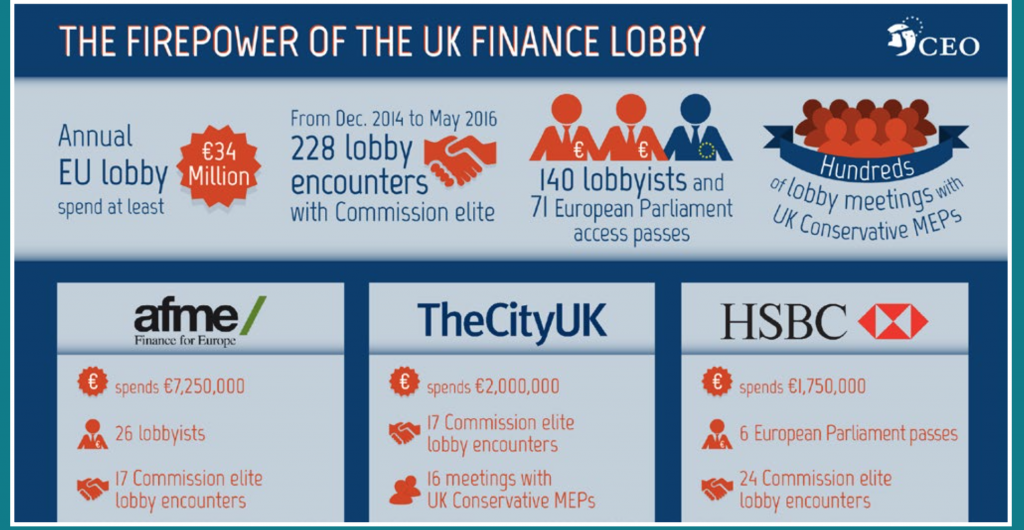








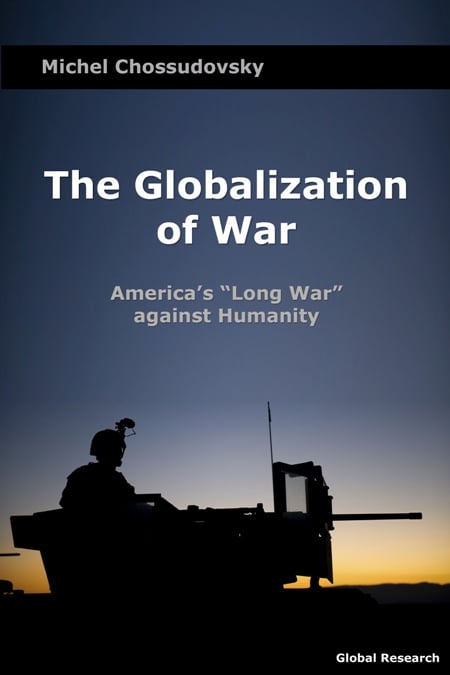

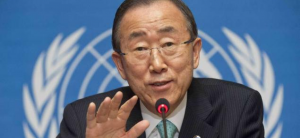



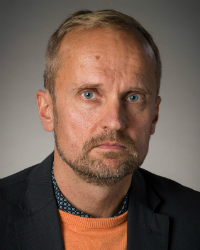
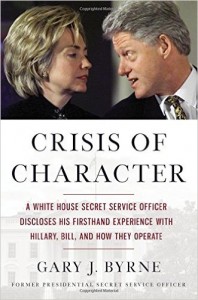
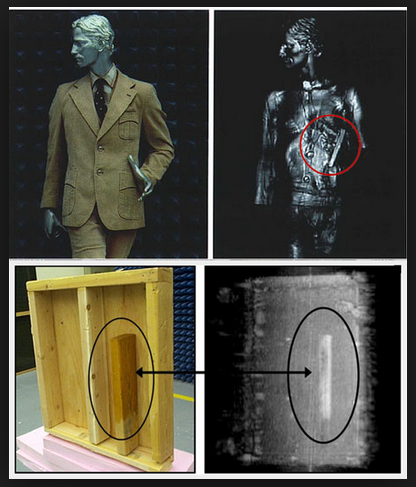

 Washington’s European vassal states are on the road to social, political and economic destruction. The European Union’s (EU) sanctions on Russia is one example on how farmers, working class people and various businesses are experiencing financial difficulties and even bankruptcy due to US-NATO’s reckless policies against Russia.
Washington’s European vassal states are on the road to social, political and economic destruction. The European Union’s (EU) sanctions on Russia is one example on how farmers, working class people and various businesses are experiencing financial difficulties and even bankruptcy due to US-NATO’s reckless policies against Russia.






